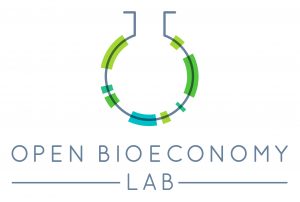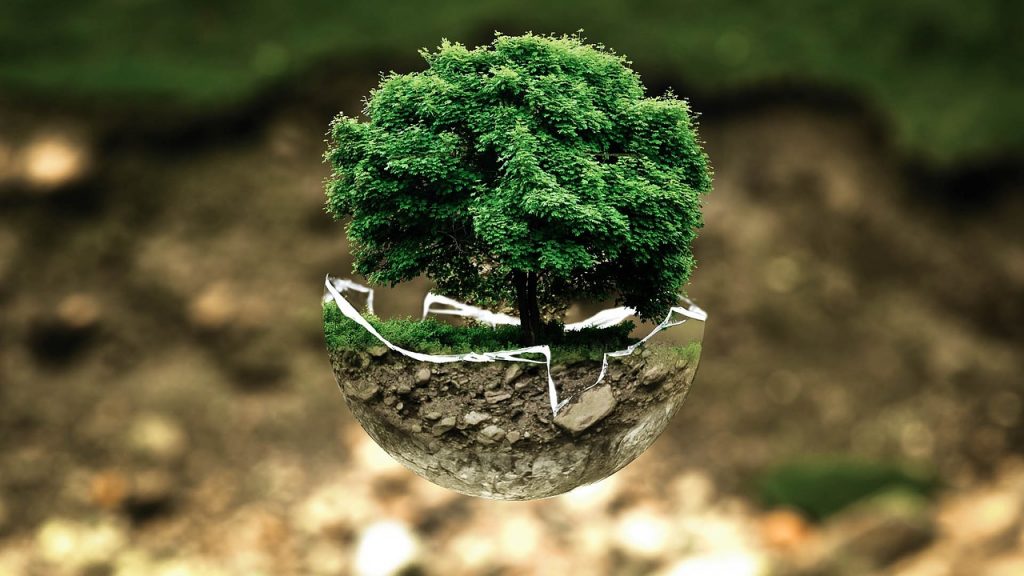I’m excited and honoured to be in the first of week of a Shuttleworth Fellowship to explore the open bioeconomy. Shuttleworth Foundation would like to build an open knowledge society with limitless possibilities for all and they do this by funding Fellows at the intersection of open source, technology and education:
To help us get there, we identify amazing people with innovative ideas, give them a fellowship grant, and multiply the money they put into their own project by a factor of ten or more. If we are deliberate about finding great people, supporting and sharing their positive approaches for social change, the world will get better, faster. That is why we are looking for social innovators who are open at heart, have a fresh perspective on addressing challenges and have a very clear idea of their role in bringing about positive change.
To give you a flavour of what the next 1-3 years holds, here is my application to the Foundation!
Tell us about the world as you see it.
Biology as a technology is key to the sustainable future of people and planet. However, during my PhD I saw inefficiency, unhealthy competition and huge barriers to participation in the bioeconomy. By 2019 just three companies will control 60% of the global seed market and most plant genetic technologies. That can never lead to equitable benefits. Open biology can and should give more people agency to shape biotech but the world shows little sign of realising this. The technology is achievable: DNA is already source code. Advances in reading and writing DNA are drastically lowering the cost of engineering organisms while digital designs for scientific hardware and DNA are proliferating through networks like Gathering for Open Science Hardware, which I co-founded in 2015. But open biology is at a similar stage to free software in the 1990s: effort is fragmented, we lack platforms for collaboration and policies are frustratingly uninformed by the practicalities faced at grassroot level. From 5 years as a thought leader in open science, I know biology can learn from digital open movements but that analogy only stretches so far – we have very different social, legal and economic realities. Many countries are pushing local bioeconomy strategies for everything from materials to diagnostics that rely heavily on proprietary innovation models. My vision is an open, sustainable and equitable bioeconomy where biology is a technology that benefits everyone and its time is now.
What change do you want to make in the world?
The status quo is distressing because the pipeline for open biology components is overflowing but the route to implementation is blocked. I’ve coordinated Cambridge OpenPlant for nearly 3 years and we’ve contributed to unprecedented growth in ‘born open’ tools, adding to the explosion of tools from the 1990s and 2000s entering the public domain as patents expire. I want to make this biological commons used and useful, whether for local production of biomaterials, rapid development of disease diagnostics or affordable supplies of research reagents. I will use this impact to put forward a powerful vision for an open bioeconomy that is adopted by national and international policy makers. To advance this goal, in 2017 I convened an interdisciplinary virtual research group at the University of Cambridge on open IP in emerging technologies, now funded by the Centre for Research in Arts Humanities & Social Sciences through a competitive call. However, focusing solely on high-level policy is insufficient. I’m uniquely positioned to bridge policy and practice as a leader and coordinator at the intersection of strong networks in open hardware and open biology and I want to deploy the first implementation of an open, distributed supply chain for molecular biology reagents: from design to manufacture, distribution and quality assurance. This ambitious experiment has a high risk of failure but the pay-off will be enormous for researchers who are blocked by a lack of access to tools.
What do you believe has prevented this change to date?
I have identified three factors to explore during the Fellowship year:
- Openly licensed biology is necessary but insufficient. How do we make open tools useful? Dr Linda Kahl (BioBricks Foundation) and I collaborated on the Open Material Transfer Agreement as a legal tool to open up biological materials but practical routes for global access to and use of materials are not in place. This line of work would follow Luka Mustafa’s ‘useful source’ approach to open hardware.
- The supply chain for biological tools is broken. How would distributed biomanufacturing of reagents work? I will lead the creation of both a technical toolkit of open hardware, DNA and other resources and a socio-technical toolkit of standards, quality assurance protocols and business models that enable communities of tools developers, researchers and companies to participate in an open bioeconomy.
- Narrative matters in policy. How do we counter the prevailing anti-open narrative in biological innovation? Policy makers don’t understand the value of openness and reject it as a legitimate choice for disseminating biotechnologies to achieve positive social impact. I will counter this with clear narratives on public value, success stories and longer-term economic gains. Due to global efforts to attain the UN SDGs, the time is right to make this case loudly and openly.
What are you going to do to get there?
I will be based at the University of Cambridge because I want to approach the work as both an academic and an activist and leverage my privileged access to policy makers as a member of a globally elite institution. Open biology needs academia but academia needs to change how it works. I will show universities the value of new partnerships with citizens, social entrepreneurs and low-resource communities. For example, I am Director of Biomakespace, a non-profit community biology lab that I founded in 2016. I will prototype tools ready for global distributed manufacture at Biomakespace, where my team of volunteers are reinventing the laboratory as a space for the type of distributed collaboration that I want to see become the norm in biology. I have three projects which are all necessary to build my story:
- Producing a toolkit for distributed biomanufacture of reagents in low resource settings. This socio-technical challenge will build on existing open hardware, software and DNA. The key innovations will be novel supply chains, standards, community-led quality assurance and business models.
- Building a policy case for the open bioeconomy. I will describe the need for an open bioeconomy and the technical, economic, legal and social aspects that underpin it. This may be an extended whitepaper or a book.
- Understanding the supply challenges for biological reagents and exposing access inequalities through open, crowdsourced survey data. This will inform the first two projects.
What challenges or uncertainties do you expect to face?
I’m a biologist by training so my questions take me deeply outside my intellectual comfort zone and into economics, innovation policy, technology studies and law. However, being embedded in open science communities for so long has already transformed my way of thinking and I feel a deep-seated need to contribute insightfully and impactfully to the vision I’ve described. The Fellowship would give me the dedicated time I need to grapple with these challenging ideas. One uncertainty is how far an open bioeconomy will increase technology justice. I absolutely believe that it will but examples from open government and open science demonstrate that openness does not deliver the same result in all contexts and that it can be negative, regardless of good intent. I will be open and responsive to that possibility. I foresee that my biggest challenge will be gaining traction with policy makers because the narrative I’m building is completely opposed to the current focus in biotechnology on strong patent protection and private profit maximisation. Developing an open reagent supply chain is an ambitious challenge and a high risk project. As co-founder and Director of two non-profit companies (Biomakespace and ContentMine, a Shuttleworth-funded open source text mining organisation) I’ve successfully navigated challenges from bank accounts to biosafety regulations and IT infrastructure to corporate governance, so I’m primed to face the operational challenges that I know will arise.
What part does openness play in your idea?
Openness is fundamental to my personal philosophy and the idea behind the open bioeconomy. My vision is a response to the current intractability of open research, development and manufacturing models in biology and increasing proprietary ownership and control of biotechnologies. I want to target research tools initially because they’re a vital enabling platform to grow the number of people who can conduct research, particularly on global problems that require local solutions. Research tools are (usually) a publicly-funded good so the case for open sharing is stronger and increasing access to them is the only way I see to allow distributed innovation with the next generation of biotechnologies in low-resource settings. On the other hand, I’m skeptical of the power and utility of openness in all contexts and would relish the opportunity to have time and freedom to think deeply about its role. I’ve spent almost a decade advocating internationally for open approaches to sharing scientific knowledge and I’ve come to view openness as a powerful tool to disrupt incumbent systems and accelerate knowledge production and dissemination. However, I have also learned that the important questions are ‘open for whom?’ and ‘for whose benefit?’. I intend openness to increase equity rather than reinforce or strengthen existing power structures but I have to consider the risk of the latter. Image Credit: ejaugsburg(Pixabay) in the Public Domain


